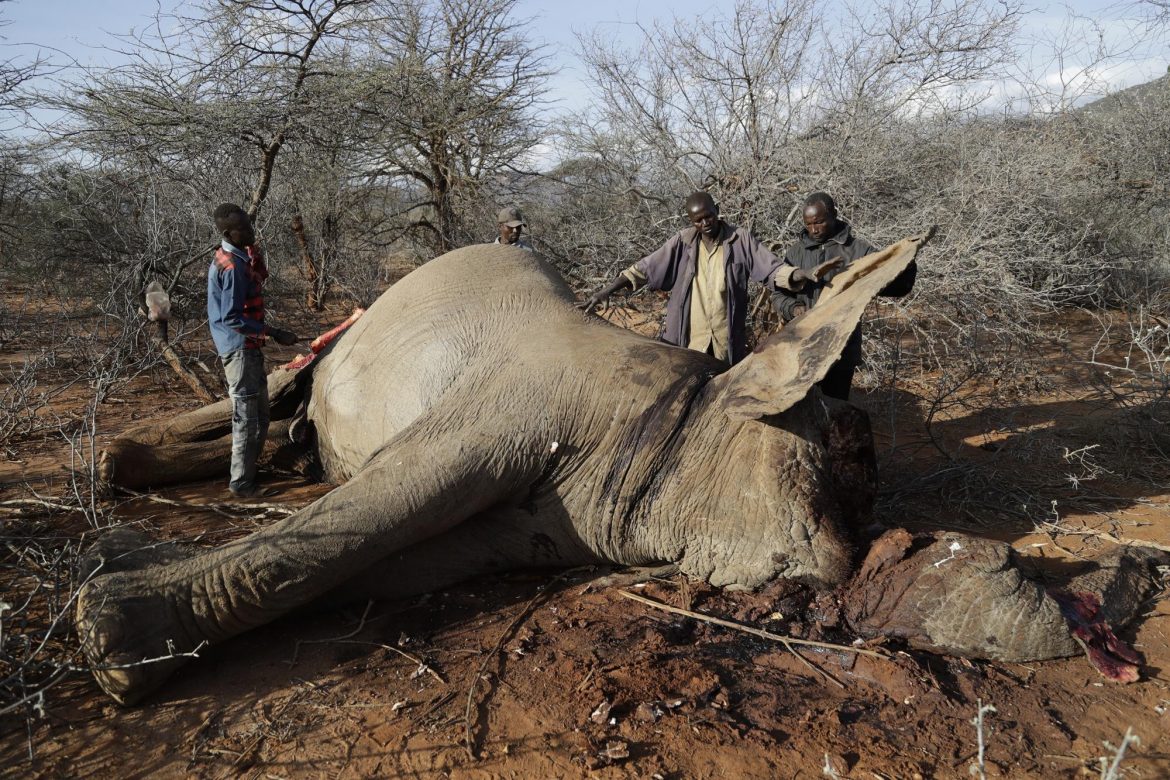Questions concerning how to better protect fragile ecosystems from a warming climate, including Kenya’s savannah grasslands, will form part of discussions at this week’s United Nations biodiversity conference in Montreal in Canada.
During the conference, governments will be seeking to come up with a framework of how the world should protect nature and aim to set goals for the next decade, with conservation groups saying that current programs are not working.
As four consecutive years of failed rains causing some of the worst conditions in 40 years and a destructive drought exacerbated by climate change continue to wreak havoc on people and wildlife in East Africa, wild animals have become commonplace across villages in Kenya as they search for food. Many don’t survive, providing herders an unfortunate lifeline as they cut chunks of meat from their carcasses.
According to Kenyan authorities, the drought has killed over 200 elephants, nearly 400 common zebras and more than 500 wildebeests among several other species in the past nine months while many of those that survive are starving, weak and frequently coming into contact with people.
While the Kenyan government has since provided some relief supplies like water, forage, hay and salt licks for wildlife in the region, animals are still forced to travel further into residential areas in their search for food and water.
Read also: Climate: study reveals Rising temperatures cause distress to fetuses
“Elephants tend to be attracted to the trees that I planted in my homestead,” David Lepeenoi, a 54-year-old resident of Samburu, said. “The trees and water points are the main source of conflict between elephants and the community.”
According to reports, Climate change and poor conservation practices have degraded protected rangelands, reserves and national parks in recent years and records from conservation charity BirdLife Africa show that dozens of birds are also dying in northern Kenya, most likely from starvation.
“Carcasses of migratory birds, such the European Roller, could be seen in the expansive dry landscapes,” said the charity’s Alex Ngari. Over 300 bird species on the continent are already classed as globally threatened or critically endangered.
The drought has also devastated communities and is leading to the loss of livelihoods, livestock deaths and failed crops and farmers now fell dried trees to produce and sell charcoal to make ends meet leading to even more biodiversity loss in the region, said Paul Gacheru from the conservation group Nature Kenya.
“A concerted call toward supporting local communities to cope with the impacts of climate change is needed,” said Gacheru, adding that local people need less destructive ways to adapt to the warmer, drier climate.
Communities across the continent are also facing similar losses. The Okavango Basin in southern Africa, which provides water for one million people and half the world’s elephant population, has suffered as climate change, urban development and deforestation deplete its resources.
Adapted from AP.
